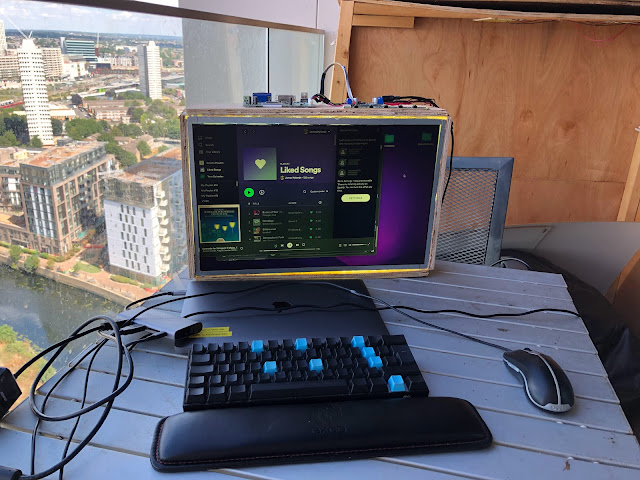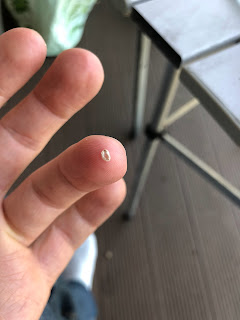Coding on the beach
I have for a long time wanted to make a system that would allow me to code on a beach.
In recent years I’ve had two approaches to this, one has been to try and produce some sort of virtual reality desert island with a beautiful break.
The other has been to try and produce a screen that I can see in direct sunshine.
But modern screens are far better at being seen in the sunshine you might say.
Just get an anti-reflective coating you might say.
Both of these are good solutions but as you can see from the picture below both pale in comparison with my creation.
The screen I present here is the culmination of 5 attempts and over £100.
The device has 80w of led draw producing a lighting power for which a back panel full of heat sinks cannot dissipate in high ambient temperatures.
So far I haven’t been able to test the device outside of my flat and I know from previous experiments that ended up in the prototypes being smashed that the power pack I have cannot support both the screen and charging of my laptop at the same time.
Challenges:
This, much like the heating of grandmother's house using a bitcoin miner is a project difficult enough to not attempt again.
The challenge is not a conceptual one, instead, it is one of finesse. The reason it has taken 5 attempts (each screen costing about £15) is that the panel on a screen is delicate.
The way modern LCD screens work is by shining a light through a “screen-pannel”.
The screen panel is made of liquid crystal trapped between two panels of glass which through lithography have had small circuits built on them so that when a current is placed across a sub-pixel some fraction of the light is blocked.
Given that these screens are 1920x1080 there is both a lot of data to be passed to that panel and a lot of delicate pockets of crystals that could be damaged.
The way that all of those pixels are set is not through a wire coming from the computer for each pixel instead, it is sent as a signal over perhaps 100 such wires. If there is any disruption to that signal or its timing the screen will cease to work.
The final working screen:
The first attempts were good but didn't deliver anything more than a nasty electrical burn




Comments
Post a Comment